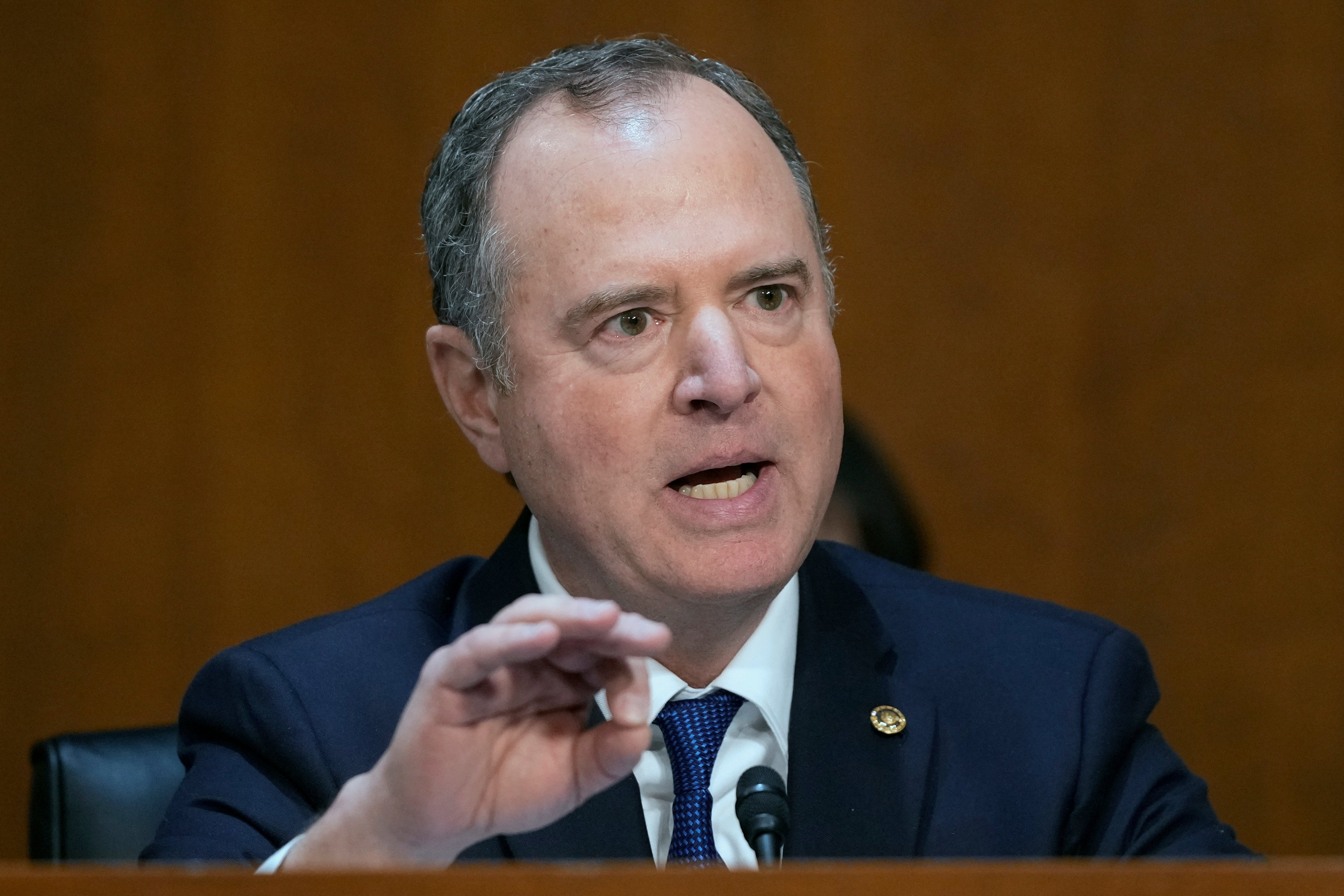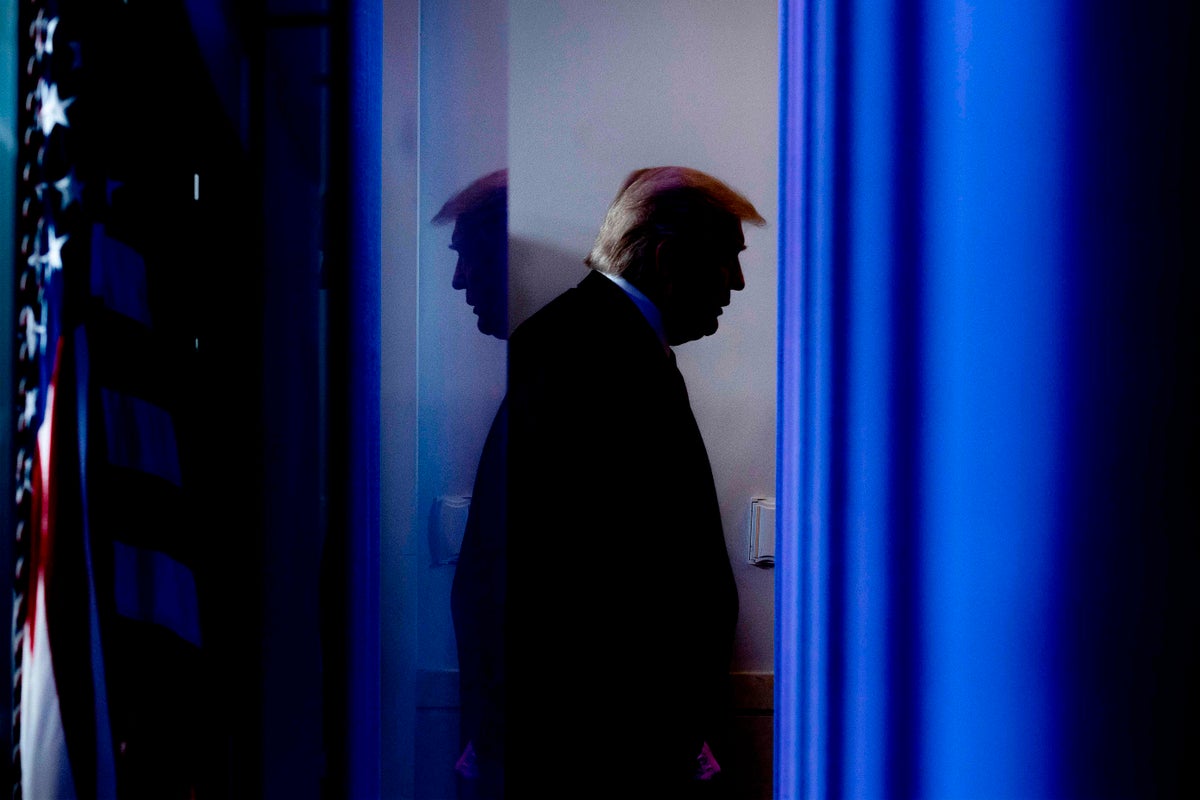In just a few days, Donald Trump appeared to lay waste to decades-long American efforts to crack down on public and private corruption within the U.S. and abroad with a series of actions that experts are calling a clear signal that malfeasance by politicians and corporate actors will be tolerated if not encouraged.
The onslaught began on Monday after California Senator Adam Schiff sent a letter to White House Chief of Staff Susie Wiles and Office of Government Ethics director David Huitema inquiring about whether billionaire Trump patron turned “Department of Government Efficiency” boss Elon Musk had complied with the federal conflict-of-interest and financial disclosure reporting requirements to which federal workers are bound.
Schiff noted that Musk’s status as an unpaid Special Government Employee — a part-time designation that nonetheless subjects the SpaceX and Tesla founder to federal ethics laws — grants him “access to sensitive government information” at the same time that Musk “retains significant financial interests in multiple private companies that benefit from federal government contracts.”
“Mr Musk’s activities, access to sensitive federal government information, and potential financial conflicts of interest also raise significant questions about Mr. Musk’s foreign entanglements and the activities and possible conflicts of other individuals associated with the ‘Department of Government Efficiency,’ which will be the focus of forthcoming requests for information and records that are needed for the U.S. Senate to exercise its essential oversight and legislative functions,” Schiff added.

The California Democrat received a rapid response, but not the one he was expecting. Within hours of receiving his letter, White House Personnel Office director Sergio Gor notified Huitema — who was confirmed to a five-year term heading the Office of Government Ethics late last year — that he was being removed from his position.
The rapid defenestration of the executive branch’s top conflict-of-interest watchdog was just an opening salvo in what quickly escalated into a symbolic war on the concept of consequences for corruption.
Within a few hours, news broke that Trump’s former personal lawyer turned acting deputy attorney general had ordered the U.S. Attorney’s Office in the Southern District of New York to drop the blockbuster bribery and public corruption case it had filed against New York City Mayor Eric Adams.
The memorandum from Justice Department headquarters stated that the decision to seek an indictment against Adams for allegedly taking illegal foreign campaign contributions in exchange for official acts had “unduly restricted Mayor Adams’ ability to devote full attention and resources to … illegal immigration and violent crime.”
The unprecedented move came after months of work by Adams to curry favor from Trump by claiming that his prosecution was a consequence of criticizing the Biden administration’s immigration policies.
And in the Oval Office later on Monday, Trump went even further by making two announcements as he signed related documents while reporters looked on.
He pardoned disgraced ex-Illinois governor Rod Blagojevich, a Democrat turned Trump booster who’d been convicted of multiple felonies related to his attempt to sell the Senate seat vacated by former president Barack Obama after winning the 2008 presidential election.
But just before that, he dropped another bombshell by telling the press that he was effectively ordering the Department of Justice to stop enforcing a decades-old law, the Foreign Corrupt Practices Act, which prohibits American corporations and individuals from bribing foreign government officials.
Trump complained that the anti-corruption measure, which was signed into law by then-president Jimmy Carter in 1978, was a “disaster for this country” because “it made it very, very hard, from a practical standpoint, to make deals” overseas without violating the law, implying that bribes are expected to be a routine part of business, including for American companies.
“It hurts the country. And many, many deals are unable to be made because of it. Nobody wants to do business because they don’t want to feel like every time they pick up a phone, they’re going to jail,” he said.
The move was immediately condemned by Democrats such as Maryland Representative Jamie Raskin, the ranking member on the House Judiciary Committee.
In a statement, Raskin said Trump’s actions amounted to “pulling the plug on prosecutions for bribery and other foreign corrupt practices” and predicted it would have the effect of “making bribery and corruption perfectly legal again.”
Raskin also pointed out that Bondi, a former Florida attorney general who represented Trump during his first impeachment trial in 2020, had recently ordered the disbanding of Department of Justice divisions responsible for prosecuting evasion of U.S. sanctions and a separate division charged with prosecuting unregistered foreign agents operating in the United States.
“Now the Administration is giving corporations free rein to pay bribes, kickbacks, and financial tribute to corrupt foreign officials with the promise that they will not face prosecution,” he said.
For Walter Shaub, a government ethics expert who headed the Office of Government Ethics from 2013 to 2017 and resigned that post because of his concerns over lax ethics enforcement in Trump’s first administration, the recent developments weren’t anything new.
But Shaub told The Independent that the president’s decision to fire Huitema and Special Counsel Walter Dellinger were “cowardly acts” by a man who doesn’t want his underlings to face any form of accountability whatsoever.
“He’s clearly afraid of anyone in government who could prevent wrongdoing by his administration. This is what you would expect from a convicted criminal who was elected president and now wants to commit ethnic cleansing in Gaza so he can build Trump resorts, who doesn’t want to follow court orders, and who is breaking federal laws in his quest to fire federal employees for upholding their oath to support the Constitution,” he said.
As for the decision to scrap enforcement of the FCPA, Shaub was even more damning in his condemnation of the president’s move and motives.
“Telling American companies that he’ll let them commit bribery overseas is part of this whole corrupt package. America knew what Trump was. America voted for corruption. Trump is hellbent on giving them corruption,” he said.
Another former government ethics expert, former U.S. Ambassador to the Czech Republic Norm Eisen, said in an interview with the Associated Press that Trump’s first few weeks in office represented “the most corrupt start that we’ve ever seen in the history of the American presidency.”
Eisen added that Trump’s pardon of Blagojevich and his order to halt enforcement of the FCPA have “sent an unmistakable message that corruption is welcome in his new administration.”
While Trump claimed that his decision to suspend enforcement of the Carter-era anti-corruption statute would be a boon to American business, experts are sounding the alarm about the difficulties it will bring for U.S. interests.
Transparency International executive director Gary Kalman said the move “diminishes the crown jewel in the U.S.’s fight against global corruption” and “raises the cost of doing business,” citing the example of an American company widely believed to have paid bribes to grease the skids so it could sell junk medical equipment abroad at the height of the Covid-19 pandemic.
He also pointed out that the FCPA was a “huge leap forward” in anti-corruption efforts worldwide because it allowed American authorities to require “strict accounting requirements and controls for companies in order to prevent cover-ups” and set out a model that other nations have emulated.
But it’s not just Americans who are concerned about the long-tail effects of the effective end of the American prohibition on foreign bribery.
Nick Vamos, a former head of special crime at the U.K. Crown Prosecution Service, told The Independent in a phone interview that Trump’s order was “an incredible U-turn on decades of US policy to encourage the rest of the world to enact similar statutes and clamp down on overseas corruption and level the playing field by getting rid of bribery and corruption.”
He recalled how the American government had “berated” the British government for years until enactment of the 2007 Bribery Act to outlaw foreign bribery by U.K. businesses. He said Trump’s desire seemed to stem from a belief that other actors — including China — were engaging in bribery for access to African and Asian rare earth metals and other resources.
“His level playing field is we should be able to bribe our way into access to these things in the national interest, just like our rivals are. So it’s just a remarkable abdication of the moral high ground,” he said.
Vamos also warned that Trump’s decision to order a halt to FCPA enforcement could portend matching pressure campaigns to prevent other countries from enforcing similar statutes against American companies operating overseas and suggested that the long-tail effect of this would be a “race to the bottom” when it comes to standards of conduct by corporations.
Additionally, he said the decision to stop enforcing the decades-old law could be used as an indication that the American criminal justice system is no longer independent of political control.
This could have negative consequences for American law enforcement, he said, because judges in countries that have never objected to extraditing suspected criminals to the U.S. will now have reason to believe arguments that American law enforcement is no longer on the level.
“I used to advise clients in the past that you know, the Russians are after you, or the Azerbaijanis, or maybe the Pakistanis, even the Turks, depending on what they’re after you for, you’ve got a pretty good chance of arguing … improper political motivation. But if it’s America, Switzerland, [or] EU partners, Japan, no chance,” he said.
“Now, I think it’s game on when the U.S. is after somebody — I think those arguments have just been given a huge boost.”
Asked about the criticisms of Trump’s order to stand down on enforcing the FCPA, White House spokesperson Anna Kelly told The Independent that “interpretation and enforcement overreach” with regard to the decades-old statute had “hurt our Nation’s economy and security.”
“President Trump was given a mandate to put America First, and he is committed to removing barriers that hinder American companies’ ability to compete abroad,” she said.

